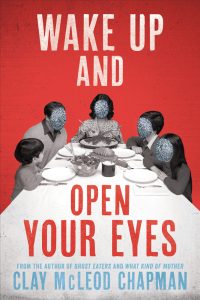Liz Bourke Reviews Cassiel’s Servant by Jacqueline Carey
 Cassiel’s Servant, Jacqueline Carey (Tor 978-1-25020-833-0, $30.99, 548pp, hc) August 2023. Cover by Mélanie Delon.
Cassiel’s Servant, Jacqueline Carey (Tor 978-1-25020-833-0, $30.99, 548pp, hc) August 2023. Cover by Mélanie Delon.
Kushiel’s Dart, Jacqueline Carey’s debut novel, was first published in 2001. I read it perhaps two or three years after that, when I was 17 or so: I remember being terribly annoyed at myself when I cracked the spine on the UK trade paperback almost as strongly as I remember the impact of Carey’s lush, atmospheric world and the rich narration of her main character. Kushiel’s Dart followed Phèdre nò Delaunay as she grew from childhood into a celebrated courtesan and eventually saviour of her nation, through many trials and several betrayals. I’ve followed Carey’s work since, usually with great enjoyment, although the older I’ve grown, the less comfortable I’ve become with Carey’s direct borrowings of real-world languages and cultural elements in her Terre d’Ange books.
Cassiel’s Servant revisits the territory of Kushiel’s Dart from the point of view of Joscelin Verreuil, the young celibate warrior-priest who is Phèdre’s bodyguard and who later – after much suffering for them both – becomes her lover. I confess I was a little puzzled when I first heard about this book: how would it work when anyone who’s read Kushiel’s Dart (and after 20-plus years that’s quite a few of us) knows exactly how everything turns out? It seemed perhaps a little… self-referential, as a concept.
I really shouldn’t have doubted. The story from Joscelin’s perspective is as fresh and compelling as the first time around, made even more so by Carey’s growth as a writer in the intervening years: a powerful narrative centred on the struggle between faith and pride, between oath-sworn dedication to an ideal and love strong enough to bend that dedication into new paths. Even more than Carey’s earlier Kushiel books, Cassiel’s Servant is a novel that draws deeply from a religious well, from deep, rooted faith and religious experience.
I can’t judge how well it works if you haven’t read Kushiel’s Dart, of course, but I think it probable that it stands alone very well. Certainly it’s a whole and complete narrative, satisfying in itself and not only by reference to the earlier book.
The Cassiline Brotherhood are a small order of elite warriors, at once bodyguards and priests. Their patron is Cassiel, who in the pantheon of Terre d’Ange is the figure who, alone of all those who followed the Blessed Elua out of heaven, kept faith with the One God and did not offer his gifts to mortals, but stood as a protector between Elua and harm. The order has fallen out of fashion, though Cassiline Brothers still attend the monarch of Terre d’Ange as bodyguards. The brethren train to defend their wards, to die before letting harm come to them, and in the worst extremity, when failure is certain and the death of their wards sure to be a bad death, to kill their wards and themselves in the one act: the terminus, as they call it.
In Joscelin’s (large, affectionate) family, it is traditional for a middle son to go to the Cassiline Brotherhood. At the age of ten, he follows in the footsteps of his late uncle Luc, to spend a decade and more in demanding training with a handful of other boys his own age, some of whom are more reconciled to the demands of the service of Cassiel than others. (Celibacy. We’re talking about celibacy in Terre d’Ange, the land where sexual repression is a weird kink.) Joscelin has a will of iron, no small amount of pride, and an inclination towards a deep faith that years of training only deepen. Not all his fellow trainees find the self-restraint necessary for celibacy to be entirely possible: more than one boy is expelled from the order on account of it. Cassiel’s purity – of purpose, and as it seems, of body – and the Cassiline Brotherhood’s attitude to it is one that makes a deep and enduring impression on young Joscelin.
It’s a bit of a shock, then, when his first assignment is as bodyguard to a courtesan in the household of Anafiel Delaunay. Two courtesans, but one of them soon retires. Phèdre nò Delaunay, on the other hand, is a constant trial to his pride. She doesn’t want a disapproving, old-fashioned, celibate young man as her bodyguard, nor does she want her movements to be curtailed. Joscelin equally doesn’t want either to fail in his oaths or to be Phèdre’s bodyguard. But before he can truly reconcile himself, Delaunay’s whole household is murdered and he and Phèdre are betrayed into captivity beyond the frontier with the Skaldi.
In captivity, Joscelin’s pride is almost his death. Instead of protecting Phèdre, Phèdre has to protect him. Stripped of nearly everything, forced to discard most of his oaths in order to try to keep the most important, Joscelin (prompted by Phèdre) keeps getting back up and trying. They have no one but each other, and their need to survive and escape takes on new urgency when Phèdre realises that the Skaldi, united under a new warleader, are planning to double-cross the Terre d’Angean traitors who mean to use them to topple the throne, and take Terre d’Ange for themselves.
It’s no wonder that Joscelin comes to love Phèdre with a passion beyond his Cassiline vows, despite – or perhaps because of – seeing all her flaws.
Like war, loving a god’s chosen was something that required a certain sense of absurdity to survive with one’s sanity intact. And I did indeed love Phèdre nò Delaunay with every part of my battered heart, body and soul, but she had an undeniably overdeveloped sense of melodrama and an affinity for martyrdom. It would have been a pleasant change if for once she had chosen a sensible course of action over the most excruciating one.
His understanding of Cassiel and Cassiel’s choice changes too. Back in Terre d’Ange, he chooses to follow Phèdre unhesitatingly, even when the choice makes him anathema to his order, and his painful journey of faith, loyalty, and self-understanding continues as he refashions himself in the wake of that choice. But he is still, in some sense, a Cassiline. He is Cassiel’s, and in extremity, he comes within heartbeats of dying in the most Cassiline possible way, performing the terminus.
I was in motion before Selig had any idea what I was doing, and I don’t think he would have conceived it regardless. The terminus has no place in Skaldi culture.
The terminus has no place in the world, save for that place where the perfect whiteness of utter despair meets the blazing glory of absolute faith.
Carey’s epic fantasy writing has always been suffused with a sense of the numinous and the presence, unseen but never unfelt, of gods and powers beyond the day-to-day. Cassiel’s Servant, though, is the first of her novels to be entirely, at its base, about faith: what it means to keep faith with one’s oaths, one’s gods, one’s self. It’s a powerful and mature meditation on choices made in the context of deep and sometimes contradictory religious tenets.
And it’s written in Carey’s typically vivid, atmospheric, at times lyrical prose, detail and imagery coming alive from the very first page.
‘‘They’re coming, they’re coming!’’
It was my younger brother Mathieu who brought the news, bursting into the manor’s great room, breathless and flush-cheeked, dried burrs and brittle twigs caught in the shearling cuffs and collar of his oversized winter coat. A swirl of yelping hounds accompanied him.
This is a fantastic novel, and I dearly hope that Carey continues to retell her debut trilogy from Joscelin’s point of view.
Liz Bourke is a cranky queer person who reads books. She holds a Ph.D in Classics from Trinity College, Dublin. Her first book, Sleeping With Monsters, a collection of reviews and criticism, is out now from Aqueduct Press. Find her at her blog, her Patreon, or Twitter. She supports the work of the Irish Refugee Council and the Abortion Rights Campaign.
This review and more like it in the September 2023 issue of Locus.
 While you are here, please take a moment to support Locus with a one-time or recurring donation. We rely on reader donations to keep the magazine and site going, and would like to keep the site paywall free, but WE NEED YOUR FINANCIAL SUPPORT to continue quality coverage of the science fiction and fantasy field.
While you are here, please take a moment to support Locus with a one-time or recurring donation. We rely on reader donations to keep the magazine and site going, and would like to keep the site paywall free, but WE NEED YOUR FINANCIAL SUPPORT to continue quality coverage of the science fiction and fantasy field.
©Locus Magazine. Copyrighted material may not be republished without permission of LSFF.







